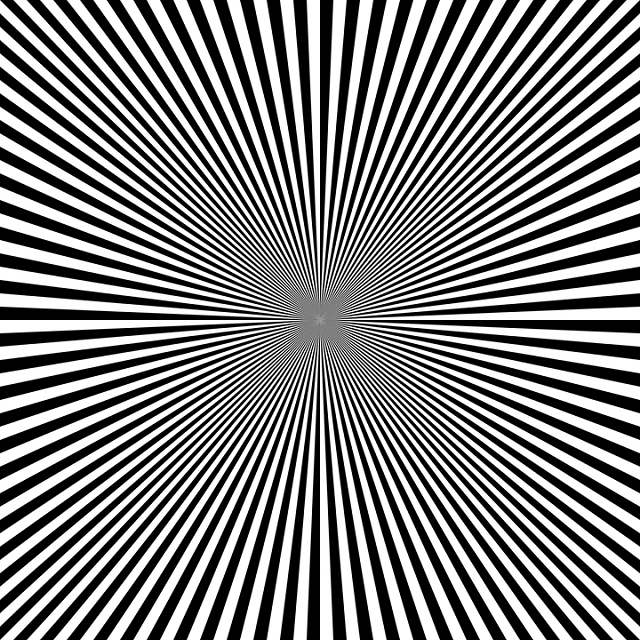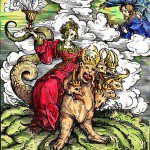
***
This was from a private dialogue about whether Jesus’ possessed the Beatific Vision in this life, as related to discussions of the knowledge and consciousness of Jesus and the Hypostatic Union (Two Natures of Christ), as discussed in two previous papers of mine [one / two], related to the film, The Young Messiah.
*****
Our level of human understanding of a doctrine is one thing; magisterial proclamations of the truthfulness of the doctrine are another. I fail to see how the mysteriousness of a doctrine is any reason to reject it. There are a host of doctrines in Catholicism that we can’t figure out (or totally comprehend, I should say) with our human capabilities. Transubstantiation? Millions reject our faith because of that. A God Who never had a beginning, and Who is everywhere and knows everything: Who indeed [in the case of the Father] doesn’t even have emotions as we know them? All of that is barely conceivable in our minds.
The Two Natures is of similar perplexity, but we certainly can’t reject that. It’s de fide dogma. I certainly don’t understand how two very different natures can exist in one Person. But I understand even less how Three Persons can somehow be One God. I don’t reject the Trinity or the Hypostatic Union or transubstantiation because they are barely able to be grasped; neither do most Catholics who consider themselves orthodox and obedient to the magisterium. So why should this issue be a special case? It seems to me that the magisterium has made it clear enough. It’s recent theologians who have muddied the waters and made unclear what appeared quite clear as to the teaching (though not totally comprehensible) in past Catholic treatments.
Cardinal Newman wrote in his Apologia (one of my favorite passages of his):
Ten thousand difficulties do not make one doubt, as I understand the subject; difficulty and doubt are incommensurate. There of course may be difficulties in the evidence; but I am speaking of difficulties intrinsic to the doctrines themselves, or to their relations with each other. A man may be annoyed that he cannot work out a mathematical problem, of which the answer is or is not given to him, without doubting that it admits of an answer, or that a certain particular answer is the true one. Of all points of faith, the being of a God is, to my own apprehension, encompassed with most difficulty, and yet borne in upon our minds with most power.
People say that the doctrine of Transubstantiation is difficult to believe; I did not believe the doctrine till I was a Catholic. I had no difficulty in believing it, as soon as I believed that the Catholic Roman Church was the oracle of God, and that she had declared this doctrine to be part of the original revelation. It is difficult, impossible, to imagine, I grant;—but how is it difficult to believe? . . . for myself, I cannot indeed prove it, I cannot tell how it is; but I say, “Why should it not be? What’s to hinder it? What do I know of substance or matter? just as much as the greatest philosophers, and that is nothing at all . . .
We can’t “crack” the mysteries of theology and the incarnation and God’s nature by using purely intellect. Mere intellect is inadequate to resolve it by solely its own methods of reason and logic. Intellect alone cannot completely conceive of the mystery of the Holy Trinity or the mystery of transubstantiation. Why would we think it would be otherwise in this instance? We’re dealing with some of the most mysterious and mind-boggling teachings of the Catholic faith.
It’s like the theological method of Jehovah’s Witnesses (my first theological opponents back in the early 80s), who maintain that the Holy Trinity is eminently unreasonable because three cannot equal one. For them it is all rationalism, and that trumps faith and the Bible, biblical paradox and mystery, and actual historical tradition.
We can sit here all day and try to figure out what none of us can fully comprehend (not being both God and man as Jesus is), and, failing that, decide whether we accept various doctrines or not. But the bottom line is that we must accept what the Church teaches, as can best be determined.
Seven-year-old Jesus was “the Person of [God the] the Son” and so He knew this as a Divine Person. How He did that in (specifically) His “human way of knowing” may be difficult to figure out or relate to, but in any event, Jesus is a Divine Person and not merely a nature. Therefore, He (the Divine Person) knew this, and yet this was denied in The Young Messiah.












